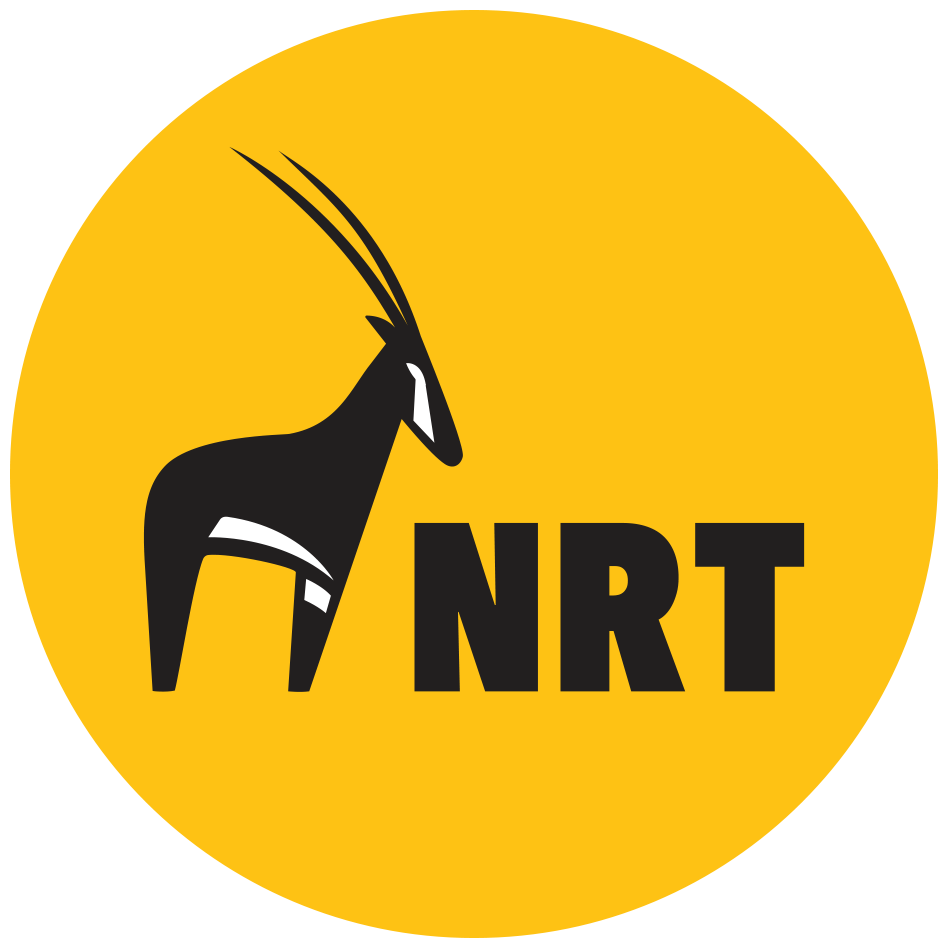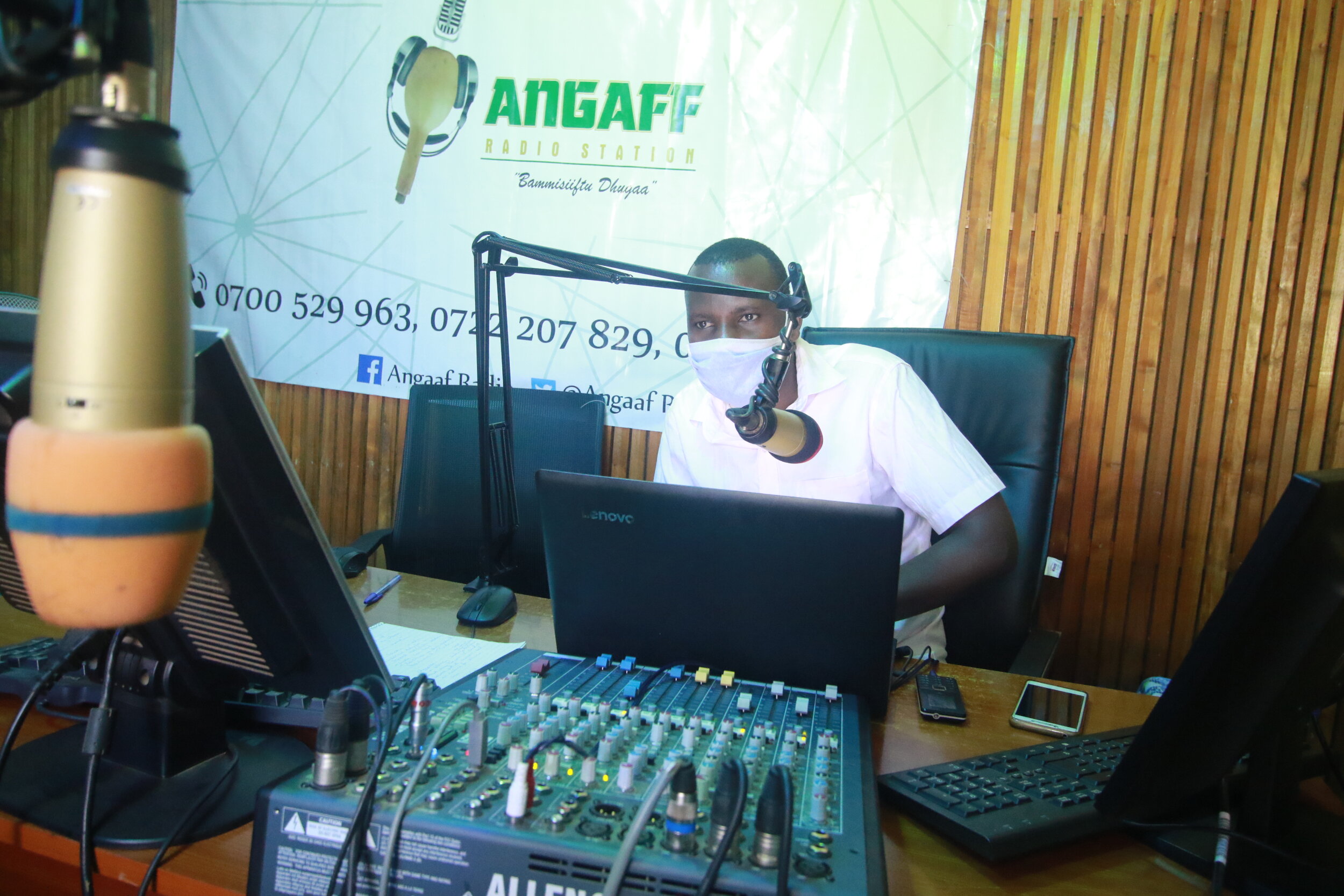Education Through Radio Waves: A new norm amidst the pandemic
“It is the principal of survival for the fittest, where genetic variation as well as changes in the environment that cause characteristics of organisms to change and adapt,” says Joseph Kariti, a biology teacher from Waso Secondary School, as he addresses his class.
But this isn’t his usual class. In fact, he probably doesn’t know the majority of the students listening to him, and it could be the biggest class he’s ever taught. This is Kariti’s fourth week at Angaaf Radio, a community radio station in Isiolo. As all Kenyan schools have been closed in light of the coronavirus pandemic, Kariti is one of 27 teachers from different private and public schools that have come together under a radio education project supported by NRT, and Isiolo County Government that aims to deliver education to students stuck at home.
Airwave Classes: Surrounded by two microphones, computer monitors and a radio sound mixer, John Kariti, a biology teacher from Waso delivers lessons via the radio.
“[When the school’s closed] we were worried on how our children’s education would progress,” says Ismail Galma, the chairperson of Parents and Teachers Association in Isiolo County. “We did not know what to do, but after a meeting with our County Senator Ms. Abshiro Halake [also a board member of Northern Rangelands Trust] she opened our eyes, challenging us to use radio to educate our children.”
While internet learning is available to a lot of students in the same predicament in urban areas, internet connectivity is a luxury most students in rural Isiolo County cannot access. Radio however, is widespread and popular.
That is why NRT partnered with the Parents and Teachers Association in Isiolo County, and Angaaf Radio, to try and enable students to continue their education at home.
“We are dedicated to empowering children through education in northern Kenya,” says Latif Boru, Isiolo County Director for NRT. “We’re helping ensure teachers can get transport to the radio station safely, and that their meals are covered. This is the latest investment of many that NRT and our member conservancies have made in children’s education. Over the years we have invested in building classrooms, teacher’s accommodation quarters, administration blocks, dormitories for boys and girls, ablution blocks and paying for supplementary teachers’ salaries and bursaries amounting to more than Ksh.200 million, but for now the school-going children are at home and we have to assist further to ensure that education gets to them.”
Currently, the lessons are aimed at class eight, which is the final class for primary schools, and form four, which is the final class in secondary schools in Kenya.
“We are focusing on these two level of classes given that they are the most critical for now, and having students learn this way also motivates those who are in lower classes and they also listen in and learn what their senior peers are learning,” says Abdi Godana, Chair of the Kenya Secondary Schools Heads Association in Isiolo. “With time we hope to create more classes to include other class levels,” he adds.
15 minutes after the lesson began, surrounded by two microphones, computer monitors and a radio sound mixer, John Kariti opens the floor for students to ask questions, he receives three and promptly answers. At the end of the lesson, before hanging up his headphones and moving away from the microphone, Kariti possess a question to his listeners; “Before I leave the studio, I would like you to have an assignment and you will answer in the next lesson. I ask you – ‘to survive the current COVID-19 situation, what new characteristics have we adopted?’ A question that will hopefully include social distance as an answer!”
The project has received accolades attracting corporate support from the East Africa telecommunications giant Safaricom who have pledged to support internet access to remote areas of Isiolo to further boost student’s access to education.


